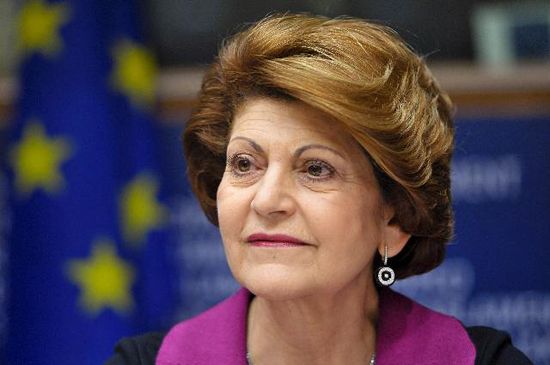20. 11. 2013
European Parliament adopts Erasmus+

Erasmus+, the new EU programme for education, training, youth and sport, starting in January 2014, was approved on November 19, 2013 by the European Parliament. Aimed at boosting skills, employability and supporting the modernisation of education, training and youth systems, the seven-year programme will have a budget of €14.7 billion - 40% higher than current levels. More than 4 million people will receive support to study, train, work or volunteer abroad, including 2 million higher education students, 650 000 vocational training students and apprentices, as well as more than 500 000 going on youth exchanges or volunteering abroad. Students planning a full Master's degree abroad, for which national grants or loans are seldom available, will benefit from a new loan guarantee scheme run by the European Investment Fund. Erasmus+ will also provide funding for education and training staff, youth workers and for partnerships between universities, colleges, schools, enterprises, and not-profit organisations.


"I am pleased that the European Parliament has adopted Erasmus+ and proud that we have been able to secure a 40% budget increase compared with our current programmes. This demonstrates the EU's commitment to education and training. Erasmus+ will also contribute to the fight against youth unemployment by giving young people the opportunity to increase their knowledge and skills through experience abroad. As well as providing grants for individuals, Erasmus+ will support partnerships to help people make the transition from education to work, and reforms to modernise and improve the quality of education in Member States. This is crucial if we are to equip our young generation with the qualifications and skills they need to succeed in life," said Androulla Vassiliou, Commissioner for Education, Culture, Multilingualism and Youth.


Erasmus+ has three main targets: two-thirds of the budget is allocated to learning opportunities abroad for individuals, within the EU and beyond; the remainder will support partnerships between educational institutions, youth organisations, businesses, local and regional authorities and NGOs, as well as reforms to modernise education and training and to promote innovation, entrepreneurship and employability.
The new Erasmus+ programme combines all the EU's current schemes for education, training, youth and sport, including the Lifelong Learning Programme (Erasmus, Leonardo da Vinci, Comenius, Grundtvig), Youth in Action and five international cooperation programmes (Erasmus Mundus, Tempus, Alfa, Edulink and the programme for cooperation with industrialised countries). This will make it easier for applicants to understand the opportunities available, while other simplifications will also facilitate access.
The new Erasmus+ programme combines all the EU's current schemes for education, training, youth and sport, including the Lifelong Learning Programme (Erasmus, Leonardo da Vinci, Comenius, Grundtvig), Youth in Action and five international cooperation programmes (Erasmus Mundus, Tempus, Alfa, Edulink and the programme for cooperation with industrialised countries). This will make it easier for applicants to understand the opportunities available, while other simplifications will also facilitate access.
European University Sports Association (EUSA) will continue its activities currently placed under the Youth in Action scope (like European Voluntary Service - EVS) and new initiatives also within the framework of Erasmus+ with more details coming soon. For more information on Erasmus+ programme, please see http://ec.europa.eu/erasmus-plus.
